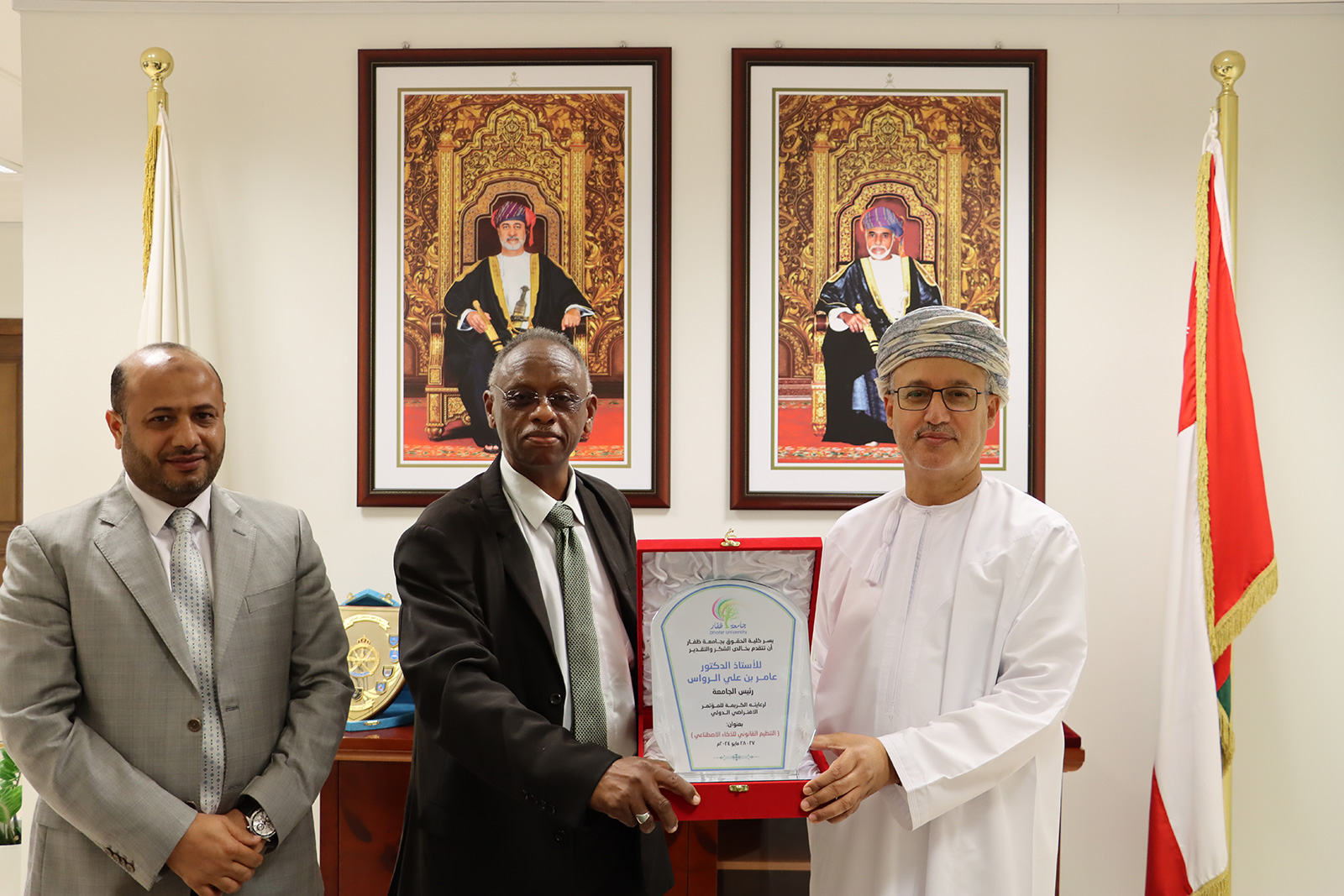
Launch of the International Virtual Conference on the Legal Regulation of Artificial Intelligence at Dhofar University
Under the patronage of Professor Amer Ali Al-Rawas, Vice Chancellor of Dhofar University, the International Virtual Conference titled “Legal Regulation of Artificial Intelligence” commenced on Monday, May 27, 2024, at the College of Law at Dhofar University. The conference saw the participation of more than 46 researchers from 9 Arab countries, including Egypt, Libya, Algeria, Morocco, Palestine, Saudi Arabia, the UAE, and Oman. The conference sessions spanned two days, from May 27 to 28, 2024, during which 39 research papers were discussed across various conference themes. These papers addressed issues arising from artificial intelligence technology in different fields of life, such as intellectual property and patents, AI techniques, computer program protection, corporate governance, trademark protection, crime evolution, and legal liability arising from human utilization of AI. Key topics related to the legal regulation of AI were also covered, including the necessity for legal regulation of AI in Oman, legal challenges associated with AI, legal responsibility for AI damages, protection of intelligent works, and the possibility of granting legal personality to AI systems. In the closing session, Dr. Ahmed Mohammed Ahmed Al-Zein, Dean of the College of Law, delivered a speech thanking the attendees for their participation in enriching the field of legislative systems for artificial intelligence. This was followed by the presentation of the conference’s recommendations, which addressed the main issues discussed by the attendees. The key recommendations included:
- The necessity of issuing comprehensive legislation to regulate the use of artificial intelligence in various sectors.
- Establishing an independent regulatory body to monitor AI applications and ensure compliance with legal and ethical standards.
- Enhancing societal dialogue and involving all relevant parties in the formulation of AI-related policies and laws.
- Focusing on the ethical aspects of AI and establishing principles of transparency, accountability, and fairness in its applications.
- Developing training and awareness programs for specialists and users in the field of artificial intelligence.
The success of this conference represents an opportunity to make substantial contributions to the development of AI-related legislation at both local and international levels. It will also help enhance the shared understanding of the legal challenges posed by this modern technology and provide recommendations and proposals to aid in the development of relevant legal frameworks in the participating countries.



